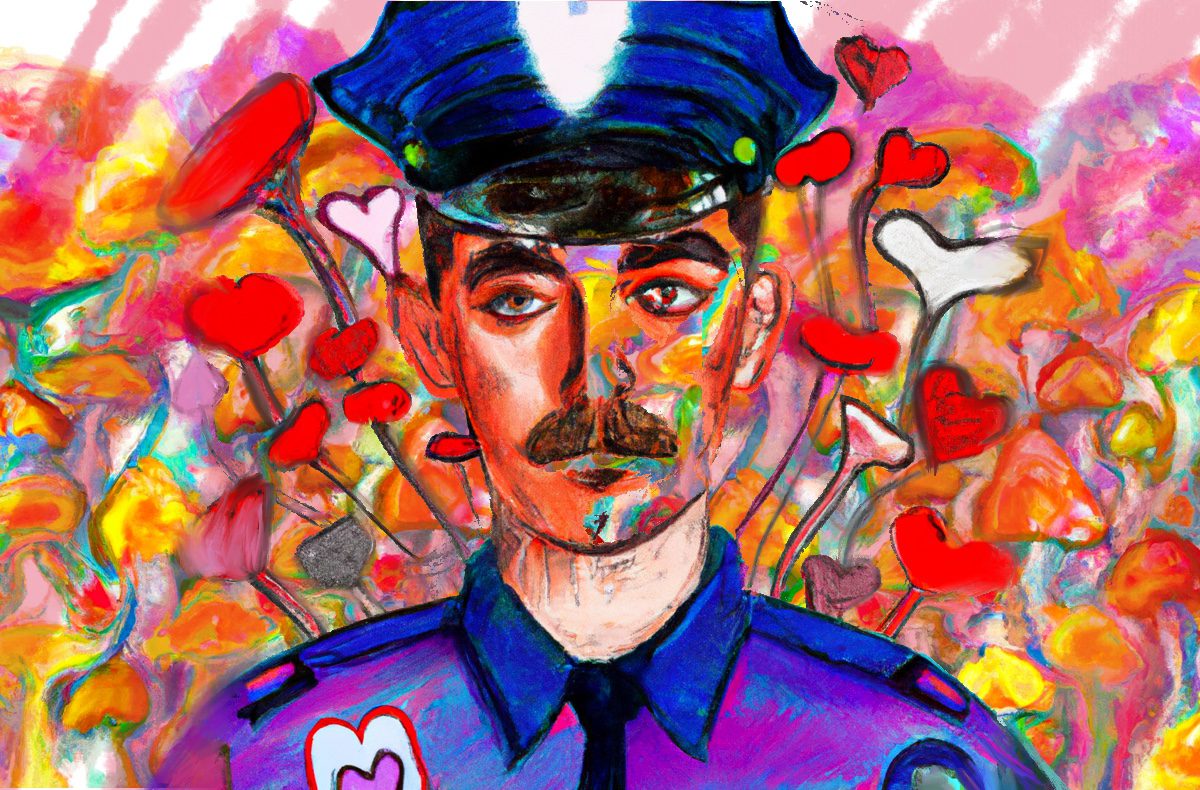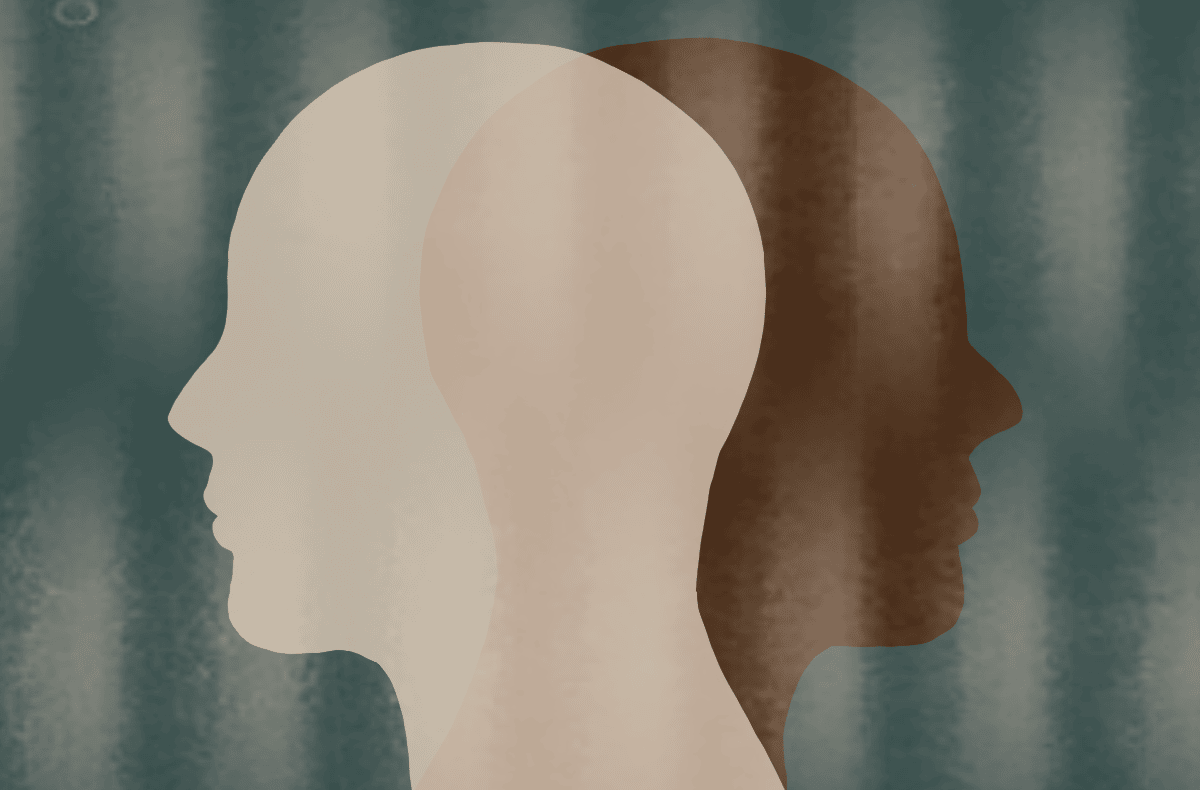
I am a survivor of domestic abuse.
I haven’t written about this before. It’s not in my memoir Good Cop Bad War. But it occurs to me that I now have a duty to be publicly honest about this because it is becoming clearer that as a society we could deal with the causes and harms of domestic violence better. As a police officer, I knew so many—way too many—survivors who deserve the very best help that science can provide.
My relationship with my wife had its difficult moments right from the start. Sam, as I named her in my memoir, had a difficult childhood. This played out with a powerful temper with an attention-grabbing sense of drama. Later in our relationship, this turned into psychological abuse.
Her father was someone who used alcohol very problematically. His descent into mental illness was plain to see. On a holiday with her whole family, he became abusive to everyone and this manifested itself in really dark ways. And he tried to start a fight with me, swaying, fists raised, calling me names.
Growing up with addiction in the family can cause trauma in childhood. This is widely understood. As I got to know Sam and heard tales of her childhood, and teenage years, I instinctively understood the trauma. And as such I later understood the origins of her abuse towards me.
Sam rarely physically assaulted me. And when she did it actually was a relief because I knew then that her temper would immediately subside and she would become apologetic and tearful; and I can take a few punches. The behavior that was my nightmare was when she deliberately stopped me sleeping. This became such an issue that my fear of it happening when I was working long hours at times dominated my thoughts. It was horrible. If I complained when she did it, she would descend into the worst petty abuse. “Man up, Neil”. I was pathetic, worthless.
I forgave her, of course I did. I loved her. But most importantly I understood where it was coming from. So, I empathized and treated her as gently as I could. Until I couldn’t anymore.
As my years of undercover work went by, I was increasingly finding myself seeing work as an escape from home. It was a relief for me but also being away seemed to take the pressure away from our relationship. Less time together seemed to translate to less abuse.
I was unaware, however, that my mental health was declining. The beginnings of what would later become CPTSD (complex post-traumatic stress disorder) was changing me. I became emotionally numb, even while I kept going back to the dangerous work I was involved in. Feeling lost, I anesthetized myself with alcohol, I had affairs. At home I no longer was able to find that gentle understanding. The empathy. I must have appeared colder and more distant. And so, the abuse increased and got worse. My descent into mental illness accelerated and it was an extraordinarily difficult time hiding what was going on from our children.
In our divorce papers, Sam denied ever physically assaulting me. But she did formally admit to the intentional sleep deprivation. Interesting that the physical assault was a taboo too far for her. But the emotional abuse was something easier to admit. (We learn as children.)
Before Nixon declared his war on drugs in 1971, it was an exciting time for psychiatry and especially the treatment of drug dependency. The greatest results on record for treating alcoholism was with LSD therapy. But all use of psychedelics was stopped dead. As Professor David Nutt states, this was the biggest scientific censorship since Galileo.
There are now the beginnings of a psychedelic renaissance, but we’ve lost decades. It is not unreasonable to suggest that by the mid-1970s there could have been mainstream use of LSD and other psychedelic therapies to treat addiction. It is not therefore beyond imagination that my former father-in-law could have got help. When you help someone with a substance use disorder, you also help their family. You help their children.
It is even more likely that if Nixon hadn’t stopped psychedelic therapies, then by the end of the 1990s, more sophisticated therapeutic interventions could have been developed. Sam would have had a better chance of getting effective help. Childhood trauma is insidious. We could be dealing with it better.
If psychedelic therapy had been available to me as a police officer and it had become normal to consider the mental health impacts of the job, then I might not have descended into becoming a man with unpredictable emotions and stunted empathy.
And of course, If we didn’t have a war on drugs to fight, I wouldn’t have suffered the work-based trauma that led to my CPTSD. All of my harms were from the front lines hunting drug dealers. Drug prohibition caused my damage. As it does with so many.
The reader should not be too concerned about me, however. I am now married again, to the love of my life. The person who makes me complete and who I should always have been with. Lynette understands me and is gentle with my emotional scars. We understand each other. I’m happy. Even though I will always have difficulties from my condition. Ups and downs.
I hope very much that Sam also has some happiness. I really do. I would love to think that she thrives. Because she is as much a victim of this war on drugs as anyone.
Those that deal with domestic violence need to take note. We need quicker development of these new therapies. Domestic abuse survivors need to be prioritized and advocated for in this emerging treatment landscape. Let’s speed this up. Let’s be ready. There are children out there who need this for their parents and for themselves to ensure they have the best chance at living a happy and stable life.



